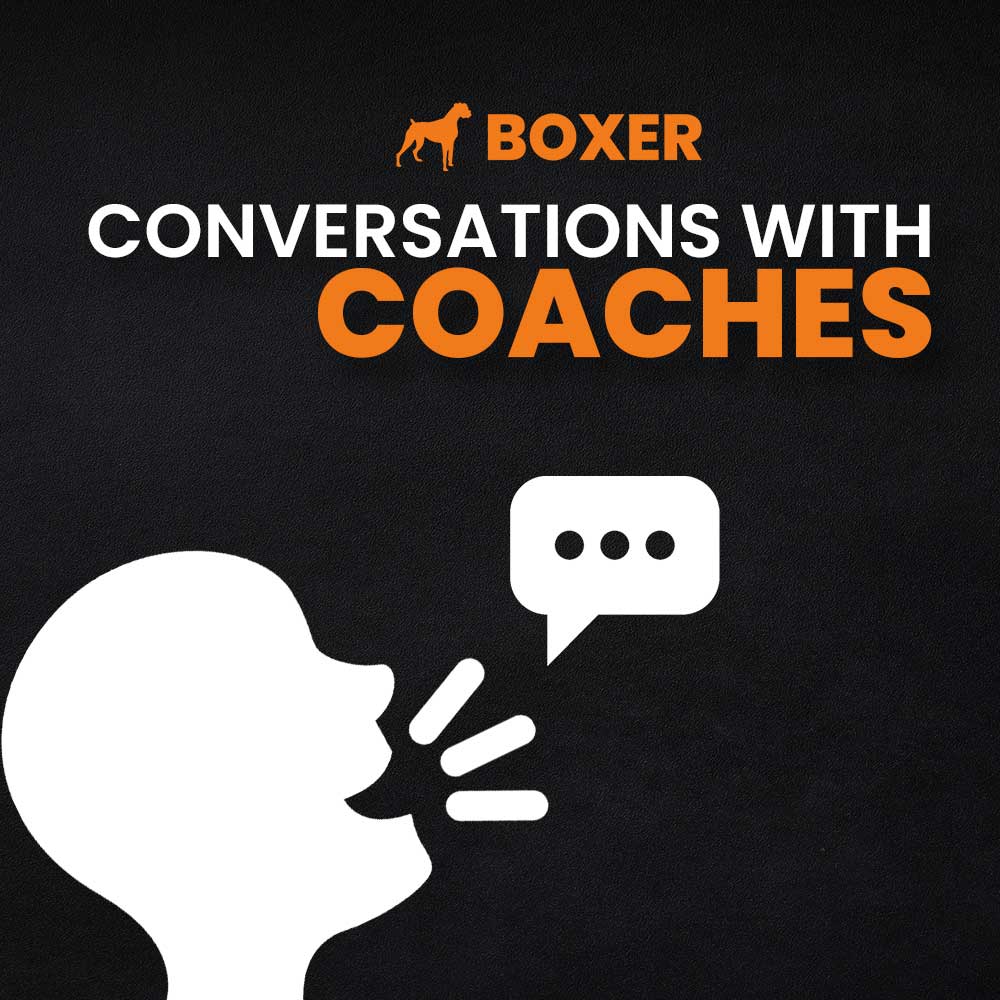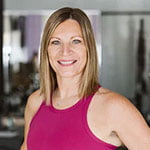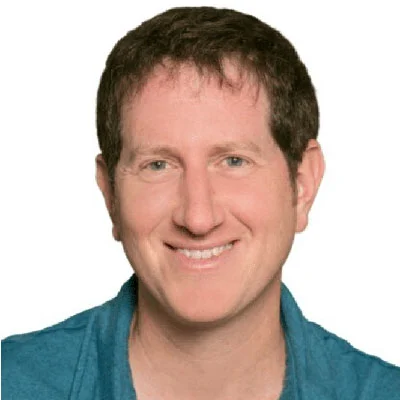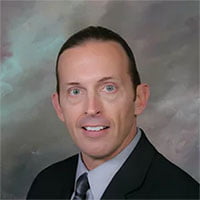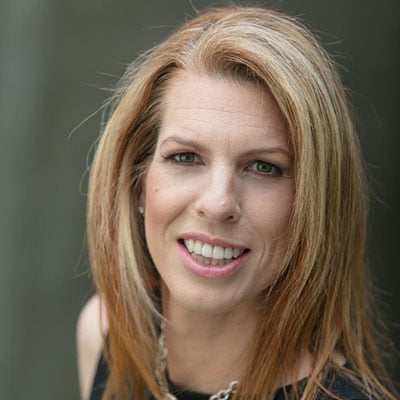Kevin Stafford 0:02
Hello everyone and welcome to another episode of the conversations with coaches podcast. I’m your usual host Kevin and today I have someone who I am quite a big personal fan of someone who I’ve known for a while. Today I’m speaking with Van Haas. Early on in his family’s business everything quote unquote business just fascinated van. He graduated UCSB with a double major in communication and economics. Later on, he became a key player in leading a profitable company through what he termed accelerated growth. He just means it was really successful. Also, the founder, currently the founder of accounting, a bookkeeping and consulting firm, that satisfies his passion for both process and tech van, we’re gonna have a lot to talk about, I’m so excited to kind of explore what you do, why you do it, how you do it, it’s gonna be great to talk to you. So I’m glad you’re here.
Van Haas 0:49
Thanks so much. I’m looking forward to it. Cool.
Kevin Stafford 0:52
Let’s, let’s begin at the beginning, start at the start your superhero origin story? How did you end up choosing to do what you do, which is sort of actually maybe talk a little bit about what you do. And the way you go about doing it. Because most people will hear you know, accounting, and they think numbers, they think by the books, they think, you know, math precision, get it done, necessary, super valuable, also very trust based. But I think the way you approach it has a lot more to do with coaching and consulting than most people would think. So talk about how you got your start deciding that that was the way you wanted to go about doing this. And then, you know, everything about that journey.
Van Haas 1:28
Yeah, sounds good. So, it’s been a lot of learning to get to, I think we’re at where we’re at today. Everyone feels that way as they as they progress on but, you know, it started super early on, I still remember, as a younger kid, my parents had a small business, they do like garment printing and embroidery and, and, you know, I was involved in that business, helping on the embroidery machines. And then later as I got a little older, actually, you know, going to trade shows and reviewing contracts for machines, and, you know, putting my two cents in as a as, you know, a 1617 year old kid. But it really just fascinated me all the the moving parts of the business. Then, you know, fast forward later into college, I had this one professor that I still remember. And he was a professor, but he also did a lot of consulting. And so he brought in all these stories of consulting and his his classes and talked about these, you know, big corporations, he was helping, you know, with their, their strategy and making these big decisions. And I just always remember sitting in that class thinking that that would be so cool to do that kind of work. And then the, as a professional, you know, I forgot all of that, and went to work work for a few companies. And like you said that, you know, I work for a really successful company, help help them grow a lot. And yeah, as I sort of got into that a bit, I think I was in it, maybe seven years, something like that. And, and, you know, it was kind of reevaluating, like, Okay, I’m getting into my later 20s And I sort of want to do something, you know, that that that desire to start my own business kind of was coming back to me and started sort of like thinking, Well, what have I done, how can I take advantage of the experience that I’ve kind of fallen into and and I remembered a consulting firm that that the company I worked for it hired, and I remembered even then sitting in those meetings, and watching these guys work thinking God, that would be such a cool job to be able to come in to all these different businesses hold these meetings, you know, help them figure out the problems and you know, get solutions and that kind of thing. And, you know, in the end, I decided to quit my really successful job and you know, great benefits and high paying to start my own thing. And actually, I went to work for that consulting firm, and was going to end up I was thinking about buying their, their practice in, in the town I was in this was in Sacramento, California. And that was in 2009, which was a really bad time to be a coach because the economy fell out and, and no one was really interested in paying for consulting fees, they were just trying to keep to have their business survive. And Sacramento was really hard hit by by the big economic, you know, hit there. So I decided, well, I need a pivot and ended up that’s when I started my first coaching business. So that was an all around cost savings and profit improvement because I felt like I had that’s what I did in my previous role. I was very involved in in you know, cost cutting and process and thinking about, you know, how to how to be more efficient and effective and so sort of built that business for a number of years and was was pretty successful in certain areas of it, but the one thing I didn’t like about it isn’t very hard. scale, I was having a really hard time figuring out how am I going to, to get this beyond just me as as a solo coach. And I didn’t want to be that I wanted to have, you know, sort of a business that would scale up, I still love coaching and wanted to continue that, but, you know, needed something else. And that’s where this idea of accountings sort of, sort of came to me and, and, you know, having done this kind of consulting, it worked for, like these really large corporations. So I worked for like some really large corporations, you know, billion dollar, like core public companies on a very narrow bid, you know, thing, I just helped them look at one specific cost item, right, and help them at that cost. But that, that was okay. But it didn’t fire me up as much as working with the small businesses, and they needed someone to come in and look at a whole slew of things, right. And, you know, as I started working with them, and seeing their financials, there was a lot to be desired. In those financials, right, it was even very successful, you know, 1020 $30 million dollar small businesses, family owned,
you know, closely held, these guys sort of they, a lot of them had had financials that just didn’t really help them see the business right, or there were just problems in the financials and But slowly, but surely, that started giving me this, this idea of, of adding in all of that accounting and bookkeeping into the mix. And so that was the kind of the basis for accounting since it was, instead of having a bookkeeper, you know, that you outsource to or a bookkeeper that you hire, and then a consultant that you hire in separately, perhaps it’s what I what I envisioned is something a little different cloud based tools are out there that allows a whole different way of working with clients in this space. So you know, instead of just going to a one to one bookkeeper relationship, I really had this vision of doing an an outsourced accounting department. And what that means is an accounting department usually is made up of multiple people, right? You have clerks, you have you know, kind of the the data entry folks, you have some accountants that are maybe mid tier senior accountants, do you have a controller, that’s kind of like process checking, and making sure that all of the the accounting is done properly, and you know, accurately, and then you usually have a CFO or someone who’s playing that CFO role could be a coach could be a consultant. And I thought, why aren’t we doing that whole thing? Why aren’t we doing the you know, from from beginning to end, because then you really know everything, right? And you can help the business owner really think about what they’re trying to achieve and help them achieve it. So that was really the you know, that’s how we’re a little different with accounting is, is we do a lot of bookkeeping, right? We help a lot of payroll, we do a lot of these things, but we also do them more complex accounting. As businesses get more sophisticated they need, they need more sophisticated numbers. And so we’ll help them get that get there. We help them look at the technology they’re using, you know, the interacts with the the accounting departments could be your point of sale, it could be time clocks, it could be you know, other tools, inventory systems, and that kind of thing. So, you know, we’re very tech savvy, and we’re going to help them get their technology flowing and right. But really the good stuff, the stuff that gets me fired up is the coaching. Because business owners, they they need all of that, that other stuff done and done well. So that then they can look at their reports or think about their decisions that they’re they need to make or problems and issues and have some data to help back up their decisions. But I also feel pretty strongly that a coach also can’t ignore the personal side, either, right? We need to think about motivations and where are they trying to go and holding people accountable and you know, kind of being there to help cheerlead them along maybe, but also hold them accountable when they need to be held accountable, and just help them think through goals and write them down. I mean, that’s what coaches that you know, to me, that’s just one of the core responsibilities of a coach is to help people actually put things down on paper and get their goals out. And they’re, you know, like, sort through those feelings and waves of, of desires that come through to get to the heart of it. And you know, that that’s the stuff that I really love to do is is help that business owner, think about what they’re trying to achieve and then help them achieve it through using using the numbers that are that are being generated.
Kevin Stafford 9:47
Yeah, I love that. There are so many awesome places I want to jump off there. I feel like I can do like a half dozen different podcast about each individual thing in different leg on the journey. But what I love is that you found out really early on or Like, I love this, this guidance, this consulting this being able to help and, and just provide good counsel and, you know, help people discover what it is they want what it is they’re doing. And usually you thought it was neat. Like I like I like what they’re doing. I like the way it looks, I like the way it helps. And then you go do some other stuff. And you find out some other things you start, you know, get two degrees, join a company, make a lot of money, help a lot of people learn a lot of things, see where things can be helpful. See where there’s need, see where there’s not see it also just experience what I mean to put not to put a fine point on it. But what does it for you, you know what gets you up in the morning, what gets you stoked, you’re like, I get to go do this today. And you kept coming back to it kept like circling around and gathering information and skills, and insight, and connections and experience. And you just keep coming back to, I want to help people take care of all that stuff. It’s all super important. But what I really want to do is I want to be there to help them discover why it’s important, and to teach them and help them to discover within themselves and within their company, how to take that important and put it into action and help them grow. And it’s keeps coming back to that over and over again, feel it’s like, quite frankly, almost every other coach I talk to your own personal internal journey is a mirror of what you help other people to do. It’s ideal, because you’re drawing from this vast personal experience all these lessons learn, you’re like, you know what I want to do, I want to help somebody else, a lot of somebody else’s, if I can feel this way about what they do and get to where they want to go the way that I have and am going it’s just not really much of a question there. There were so many cool things to talk about. I just wanted to say I love that mirroring. And like how you really keep coming back to that I just want to find a way to help serve and guide people.
Van Haas 11:38
Yeah, right it, I never thought about it that that way. And it’s such a good way to think about because if it does fire you up right, then when you’re having those moments of thinking about what you want to do and what you want this business to be, it’s probably inevitable that that’s going to kind of find its way in there, right, because it’s what fires you up. So that’s a great, great observation.
Kevin Stafford 12:01
It’s also it’s something that I find so it’s sort of like it’s the, it’s the part about coaching and being coached that almost doesn’t get talked about enough, even though it is the single core attribute of coaching is that just that connection, that like very emotional, very like personal one to one connection, and every coach has their particular thing that they help with like an industry in particular or a kind of service they provide like with you, it’s like you have these, all these disparate parts of what accounting and bookkeeping means for a, you know, a small to medium sized business, especially as it grows, things get complicated. You’ve got 10 different hands and 50 different pies, trying to communicate and talk to each other and work together. And you’re like, Okay, let’s get everybody rowing in the same direction. Because that’s going to make things not just easier, but really allow things to grow. And I’m like, looking at the books for like a family run business, you know, been around 2030 4050 years, I can only imagine the mess that must have accrued over time. And you look at that, and you just say you’re like, This is holding you back. You’re, you’re okay, you’re obviously you’re you have an operating business, you’re successful. But my goodness, I see right now 57 different things that we can do relatively tiny, some of them not so tiny, that will immediately help and also start you down a path that’s going to pay big dividends going forward. So you kind of discover, guide them to realizing that actually help them to do it. Like we’ll take we’ll take care of this for you. We’ll do this together. Here’s why we think the great idea and get everybody rowing in the same direction. And then you know, where you can go from there is it’s pretty much the sky’s the limit. I don’t know I kind of have mixed metaphors rowing in the same direction and sky’s the limit. A little land sea and air assault?
Van Haas 13:44
No, I think what you’re saying is, is is very true. And you know, what we, what we’ve historically focused on and continue to focus on and make better is that business aspect, right. And that that’s sort of that first part that you were talking about. And you know, helping people roll in the right direction, make sure the numbers are good, make sure you get some reports, help them with KPIs, budgeting forecasting, right? These are all kind of the nuts and bolts of a business thinking about profitability, and you know, which levers do you need to push and pull and, you know, you could go on and on and on about like the things that you can do on your business, to make it more profitable, make
it make more money and, you know, be more successful. But that’s, you know, I think that’s one big part, right? It’s a big part of a business owners
desire, right is to have their business performing at as high of performance as possible. But the part that’s a little bit harder and that and this is the part of the of the net, we’re still trying to crack and this is where our our practice and our businesses is is moving is how do you integrate that business owners life, right, because small businesses, for the most part are very entangled in the business owners life or the family’s life right and we See a lot of that family run, you know, passed down to generations you see, you know, closely held, you know, to two partners or spouses that are that are involved in the business. And the just the nature of that means that their personal lives and personal goals and desires are kind of getting baked into the business, whether they think about it or not, it is it’s happening. And the, I think that there’s this, this this kind of whole in a in a service or in coaching, which is, is helping the business owners kind of start there, start at the person, right and figure out what are your goals? What are you actually trying to achieve? Doesn’t have to be? Doesn’t have to be a huge process, but you do have to think about it right? How much money am I making today? How much do I want to be making? You know, and then, you know, where is this business going? I talk to a lot of people when they you know, a lot of startups will give us a call and I’ll talk to the person or, or new new prospects? And a question I often ask is, what do you what kind of business are you looking for? What do you what are you trying to do with this business? And people get hung up on that more often the than you think, between? What do I want this just to be a small business, a small kind of, you know, lifestyle business, really profitable? You know, the business owner stays in the weeds stays doing delivering a lot of the work or do I want to build this into a into a business business, right with, with employees, and we’re I’m the leader, I’m a CEO. And I always tell people, there isn’t a right choice, both of those businesses can be extremely profitable, extremely well run and super successful. But they’re totally different. And you have to make a decision, right? You have to make a choice which one you want. And that’s kind of how I feel about a lot of these personal thoughts is, you know, what are you trying to do? And, you know, one thing that business owners never think about retirement, I don’t think are very few think about, I’m going to retire it, you know, 65 or whatever.
Kevin Stafford 17:11
Think about stopping yourself. Think about stopping. Yeah,
Van Haas 17:15
I mean, I, I’m guilty of it, too. It’s like I don’t want to stop doing this stuff. I’m always gonna do something because I love it. You know, it’s different than what I’m doing today. But I’m never I’m not gonna retire. But I think one thing that business owners should think about is, how do I become financially independent on my business? Or what is the end goal of the business? Am I going to sell it? Am I going to pass it down in the family? Am I going to, you know, have have a key employee, take it over in Dubai, you know, you really have to think about the end of that business, or simply what you want in your personal life, how do you become independent of the business? Maybe not retirement? And I think that that’s, that’s kind of, you know, something that, that we’re thinking about? How do we do more to help have that conversation and push our services to help that that business owner? Think about that? So often, the business is everything, and all of your assets are all the everything, you know, the business is your whole income and biggest assets seem ridiculous. Yeah,
Kevin Stafford 18:17
it’s so it’s so dangerous. And it that’s what’s that’s? So it’s such it’s so dangerous, because it’s so enjoyable. Like, yeah, you’re doing what you’re doing, because you love what you do. And that’s a dangerous place to be. And it’s also a very hard place from which to ask hard questions, especially of yourself. And that’s why and I can’t, I will be on this soapbox. Probably at this point. Now for as long as I have a soapbox to stand on. This is where coaching is special. This is why it’s so necessary, is because what a coach can do is they could see what those hard questions are that you kind of understand like, you know, they’re out there. Or there’s usually a couple different places you’re at. You kind of know they’re there. But you don’t know what the questions are yet. You know what the questions are. But you don’t want to ask yourself, because you might be afraid of the answer, or you’re afraid you don’t have one. And that might somehow short circuit everything you’ve got there certainly different reasons. But what a coach can do when a coach arrives that is coming in and seeing those questions, and just asking them, and then waiting for an answer. And then ask it again, five minutes later, ask it a little bit differently the next day, ask it a little bit differently in a month. Don’t ask it for three, three months, and then come around and ask it in a big way. Like suddenly surprised, like all these different that’s what a coach really excels at, and it’s why I think it’s so so so important. I mean, every coach I talk to pretty much is at least at one point was or they still are the you know, owner operator of their own business, their own successful business, that and I almost without exception, every single one of them we end up talking about how much time they spend running their business as opposed to doing their business coaching, doing the thing they love to do why they got into this whole thing in the first place. And I love how, specifically almost surgically, you target that with your business like, Look, you take your all this stuff where all this stuff you know you need done. We know it, we’re really good at it. Here’s what else we’re really good at. Here’s this question you maybe have been asking yourself, let’s talk about what that answer looks like for you. Let’s talk about what that answer looks like in one year, and five years and 10 years, let’s talk about what the answer looks like, regarding how many hours a week you work, how many weeks, a month, a year, how many years you want to do this, do you do you want to just be in the weeds for the rest of your life, because you might love that, I want to find out if you do love that, and let’s build your business so that you could do that. So I love it. I love I kept us so much longer than I meant to because I told you before I hit record, this is such a juicy conversational thought or something that I feel like people love to talk about. And of course, I’m already you know, almost doubling up the time we booked. But yeah, I just wanted to comment and compliment you on that. I love this mission. And I love the service it provides.
Van Haas 21:06
Yeah, you know, I was talking to a good friend of mine, just this past weekend, and he’s gearing up to leave the country for a year. So he’s gonna He’s he’s he’s decided to, you know, businesses is on autopilot. He’s He’s stepping away from all the things he would have to step away with, and has now sped up his life to be able to be away for a year. And he had to go through that same process. So it was all about setting the goalposts, he said, You know, I’ve been moving the goalposts for 10 years. And, you know, it’s really easy to move those goalposts, if you never actually set them you never actually write them down or talk about it with your spouse, you know, and they talked about it, they set the number, and he came within 500 bucks if his number over his number, I should say. And, you know, when you when you write things down, and you have a goal and a target, sometimes it’s just a matter of thinking about, well, how do I make that happen, and he was able to do it. And I think that that’s something that everyone can learn something from including myself is, is set those targets you have to and that’s what a coach is there to do, as you were saying,
Kevin Stafford 22:16
Well, speaking of targets, then please tell me and by me, I mean everyone who’s listening, where they can it’s a two part question where they can find out more about what you do, you know, just if they’re curious, or if they’re at a point where they have a need? And also where can people connect with you, I have a feeling that a number of my listeners might want to talk with you at the very least just like you know, to chew the fat shoot the shoot the so to speak about all this stuff. So where can people find out more about you and accountants? And where do you where you like to be connected with? Where do you like to meet people for the first time and start a conversation?
Van Haas 22:47
Yep, so our websites probably the best place to learn a little bit about us. So accounting solutions.com And that’s ACC o un tix and then the word solutions.com and then connecting with me on LinkedIn guy, so LinkedIn is probably the best and I’m slash van Ha’s just first last name and happy to connect with anyone who’s, who’s interested.
Kevin Stafford 23:10
I love the way you described your name, we have a little when we have the podcast application form, we have the how do you pronounce it? Because obviously, some names are a little more challenging than others. And I like that you said it’s van like the car and hot like the avocado. It tickled me so I had to
Van Haas 23:26
share. You’d be surprised how seven letters you know can be so hard to pronounce.
Kevin Stafford 23:32
Well, then, thank you for talking with me today. Thank you for doing the pod with me. i As you know, I love talking with you on a regular basis. And this was just a nice chance to do it in a little bit of a different way. I’m really glad you came on the pod and I don’t know we might have to just do this again. sometime. I feel like we could we could dive into any one aspect of your journey from you know, UCSB to accounting and just you know, doing a 30 minute conversation. So I may just have to have you back.
Van Haas 23:56
Absolutely. You know, I’m always game.
Kevin Stafford 24:00
So thank you. Thank you to the audience. I hope you know I hope and I know you got a lot out of this so fine van might not more about him. He’s got a lot more to say. And he’s fun to talk to I think he could tell. So thank you for listening and we will talk to you again very soon.
